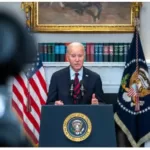On Saturday, External Affairs Minister S. Jaishankar presided over a Parliamentary Consultative Committee meeting, primarily focusing on India’s role as host for the G20 Presidency. During the session, members of parliament raised pertinent questions regarding the ongoing diplomatic tensions between India and Canada.
While acknowledging India’s G20 leadership, parliamentarians sought clarifications on the India-Canada dispute, which has led to measures such as the temporary suspension of visas for Canadians and India’s pursuit of diplomatic parity.
Addressing the matter of visa suspensions for Canadians, Minister Jaishankar emphasized that this action is not a “retaliatory” move but a precautionary measure aimed at safeguarding Indian diplomats. He underscored that the decision is not permanent but conditional, contingent upon the safety of Indian embassy and consulate staff in Canada. Sources quoted Jaishankar as saying, “The suspension of visa services may be revisited once the security situation improves for Indian diplomatic personnel serving in embassies and consulates in Canada. We can resume services promptly if our diplomats are assured of adequate security.”
Regarding the pursuit of diplomatic parity and the downsizing of the Canadian mission in India, Jaishankar explained that New Delhi’s actions were driven by necessity. He stated that Canada’s unwillingness to provide security for Indian diplomats, coupled with its demands for full immunity for its own diplomats, had left India with little choice. He went on to assert that Canada’s interference in India’s internal affairs and its tacit support for displays, such as billboards threatening Indian diplomats, under the pretext of freedom of speech, had further exacerbated the situation. Jaishankar conveyed, “Our hand has been forced by their stance. They decline to ensure our diplomats’ safety while expecting absolute immunity for their own. This situation is of their making.”
During the session, the parliamentarians inquired whether Prime Minister Narendra Modi and Canadian Prime Minister Justin Trudeau had discussed allegations of Indian agencies’ involvement in the killing of Khalistani terrorist Hardeep Singh Nijjar during their G20 Summit meeting. Jaishankar disclosed that both leaders had indeed discussed the matter during their bilateral meeting. However, he emphasized that it was Prime Minister Modi who took the initiative in addressing concerns related to the presence of Khalistani extremists in Canada and the safety of Indian missions and diplomats there. Sources indicated that Jaishankar shared, “While Prime Minister Trudeau expressed concerns about the incident, Prime Minister Modi engaged extensively on this issue. He raised apprehensions about the presence of Khalistani extremists in Canada and the security threats faced by Indian missions and diplomats.”
Regarding the allegations of Indian agencies’ involvement, Jaishankar commented, “Concrete evidence supporting such claims remains elusive at this stage,” as per sources.
One parliamentarian expressed concern about the potential impact of the India-Canada diplomatic row on ordinary citizens. In response, Minister Jaishankar clarified, “Our intent is not to subject the general public to hardships. We have issued advisories to students, ensuring they are informed and prepared.”
During the meeting, Vikramjit Singh Sahney, an MP from Punjab, conveyed his apprehensions regarding the deteriorating relations between India and Canada and presented a memorandum to Minister Jaishankar. In a press statement, Sahney remarked, “It is deeply distressing to witness the strain in diplomatic ties between India and Canada.” He advocated for constructive dialogue as the most effective means to address grievances, emphasizing the potential hardships faced by Indian families and students residing in Canada if visa facilities were disrupted. Sahney asserted, “We should not subject the common people of both nations to suffering due to the actions of a few fringe elements.”




